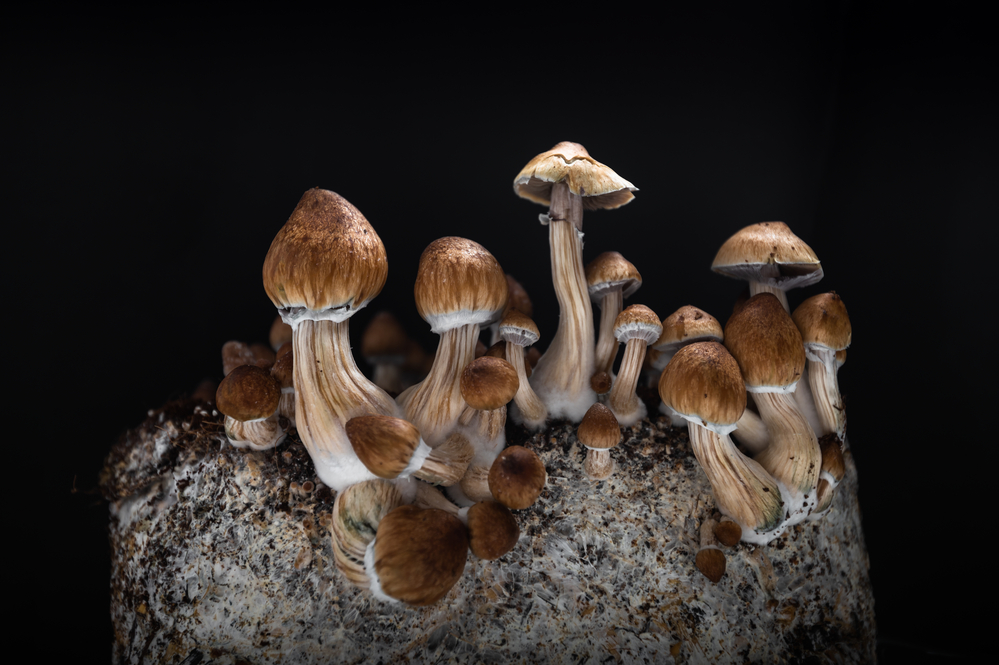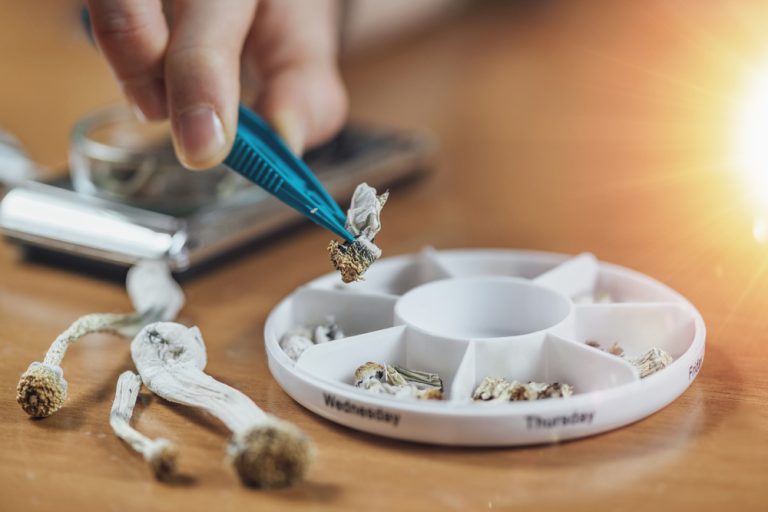
Microdosing Psilocybin: Real Stories From Therapy Users
Envision yourself traversing the intricate realm of mental health therapy, which is as diverse and intricate as a mosaic composed of many distinct fragments. ‘Microdosing

While traditional therapies offer predictability, beginning psychedelic therapy can chart new paths for mental health treatment.
You’ll need to navigate legal and clinical landscapes carefully. First, consult with a healthcare professional to discuss whether Canada Health approved options like Psilocybin for treatment-resistant depression are right for you.
If you’re interested in experimental treatments, consider enrolling in clinical trials, which are rigorously controlled for safety and efficacy. For those with severe conditions, expanded access programs might be an option, albeit as a last resort.
Always research the potential risks and benefits thoroughly and ensure you’re working with a qualified therapist trained in psychedelic-assisted therapy. Preparation is crucial, as is post-session integration therapy to help you process and apply your experiences constructively.
Before you embark on psychedelic therapy, it’s crucial to understand the legal status of the substances involved, as many remain illegal under federal law.
The Controlled Substances Act classifies drugs like LSD, psilocybin, and MDMA as Schedule I substances, indicating a high potential for abuse and no currently accepted medical use at the federal level.
However, the Canada Health Agency has granted breakthrough therapy designation to MDMA-assisted and psilocybin-assisted therapies for certain conditions, signaling potential benefits that outweigh the risks.
While ketamine-assisted therapy is available due to its Canada Health Agency approval for treatment-resistant depression, the protocols for its use in clinics aren’t uniformly regulated.
As Canada Health Agency approval for psychedelic-assisted psychotherapy could take years, it’s imperative to weigh the legal considerations and the evolving landscape of these treatments.
When considering psychedelic therapy, it’s crucial for you to be aware of the potential risks associated with these substances, particularly in light of the current research gaps. Recognizing the potential risks is an essential step before engaging in any therapy involving psychedelics:
Potential Risks: – Individual reactions vary – Treatment-resistant depression could be exacerbated – Mental health conditions require tailored approaches
Always consult with a healthcare professional before considering psychedelic therapy.
While understanding the risks of psychedelic therapy is essential, you’ll also need to find a therapist who’s not only trained in this specialized field but can provide the safe, supportive setting you require. A qualified therapist will operate within a clinical setting conducive to Psychedelic-Assisted Therapy. They should be knowledgeable in the therapeutic use of psychedelics and prepared to safely guide you through your psychedelic experience. Seek out professionals with verifiable training, possibly associated with reputable institutions like the Johns Hopkins Center for Psychedelic and Consciousness Research. This ensures that your sessions occur in a controlled setting, with integration therapy to help you process your experiences.
As you embark on this journey, it’s crucial to have a guide who’s adept and ethical. Now, let’s focus on how to prepare for the experience.
To prepare for your psychedelic therapy session, you’ll need to ensure both your mind and environment are ready for the experience. Research from institutions like the Johns Hopkins Center for Psychedelic and Consciousness Research underscores the importance of set and setting. Here’s what you should focus on:
Armed with knowledge and a supportive setting, you’re now poised to engage in integration therapy.
After your psychedelic therapy session, you’ll often find that engaging in integration therapy is crucial to harnessing the transformative potential of your experience. Integration therapy helps you process and incorporate the insights from your session, which may involve psychoactive substances classified as controlled substances, into daily life.
This practice is particularly valuable for individuals seeking relief from negative psychological states associated with conditions like depression, anxiety, and post-traumatic stress disorder (PTSD).
Clinical settings increasingly recognize the potential to treat these conditions with psychedelic therapy, followed by integration therapy. This approach ensures that you can navigate any emotional challenges following the treatment of PTSD or other mental health issues, leading to sustained improvement and personal growth.
Before starting psychedelic therapy, you must navigate legalities, understand risks, and select a qualified therapist.
Preparing mentally for the experience and engaging in integration therapy afterwards are crucial.
Remember, while Psilocybin is Canada-Health-approved for research, other substances may not be legally accessible.
Always base your decisions on solid evidence and expert guidance to ensure your journey with psychedelic therapy is as safe and beneficial as possible.

Envision yourself traversing the intricate realm of mental health therapy, which is as diverse and intricate as a mosaic composed of many distinct fragments. ‘Microdosing

While delving into the emerging realm of psychedelic treatment, it is worth contemplating the case of John, a man who claims to have had substantial

In a hypothetical scenario where your usual morning coffee is substituted with miniature mushrooms, you find yourself contemplating the growing interest in microdosing psilocybin. Have

Adaptogenic blend of magic mushrooms curated with health and vitality of your brain in mind.
Menu
Locations
© Mikrodose.is 2024. All Rights Reserved.
Mikrodose.is is not intended to provide diagnosis, treatment, or medical advice. Products, information, and other content provided on this Site, including information that may be provided on this Site directly or by linking to third-party websites are provided for informational purposes only. Please consult with a physician or other healthcare professional regarding any medical or health-related diagnosis or treatment options.